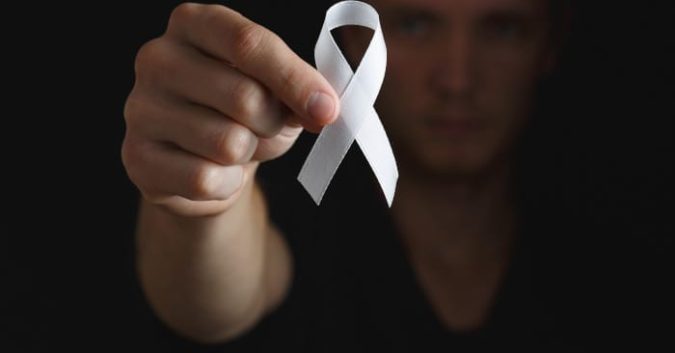November is Lung Cancer Awareness Month (LCAM), an event sponsored by the International Association for the Study of Lung Cancer (IASLC). This annual campaign brings together many lung cancer awareness groups to educate the public about lung cancer, share stories from patients and survivors, and encourage individuals to spread information about lung cancer on social media.
Lung cancer is one of most prevalent forms of cancer, and kills more people than breast, colon, and prostate cancer every year. This disease accounts for about 27 percent of deaths from cancer. At the same time, LCAM is an occasion to spread hope by sharing information about advances in lung cancer research and treatment methods.
During this month, IASLC encourages individuals and groups to sponsor events that allow lung cancer patients, survivors, and family members to tell their stories in their communities. The organization also provides educational information and social media networks for people with lung cancer, so they can find support among others who’ve had similar experiences.
Another lung cancer care organization is the Mesothelioma Applied Research Foundation (MARF), a nonprofit group that gives social and financial help to people with mesothelioma and their families. MARF funds research on mesothelioma treatment and helps people with mesothelioma form networks they can rely on emotionally while fighting the disease.
Mesothelioma: The Quiet Killer
Mesothelioma is a deadly form of cancer that is caused by inhaling asbestos fibers. When these fibers become trapped in the pleural lining of the lungs, they can cause inflammation that develops into cancerous tumors. Mesothelioma is particularly deadly because it can take 20 to 50 years before someone who was exposed to asbestos shows symptoms. Often these signs of the disease are attributed to other kinds of respiratory problem before mesothelioma is discovered. At this later stage, it is much more difficult to treat.
Asbestos was long used as a construction material, particularly in fireproofing, insulation, and roofing. People in construction or demolition can be at risk for asbestos exposure when buildings are torn down or otherwise demolished. Individuals who worked in World Trade Center recovery efforts were exposed to asbestos and are now starting to develop mesothelioma and other asbestos-related diseases. Similarly, firefighters are at a high risk of asbestos exposure when the fibers from burning buildings are released into the air.
People can also be exposed to asbestos when the fibers start to decay, which is a danger in older public buildings. For example, asbestos in schools is a serious problem, as both students and teachers can be exposed to the dangerous carcinogen if it is not removed. Studies have found that teachers have a rate of asbestos exposure that is second only to construction workers.
This pressing hazard is why over 60 countries have banned asbestos. The latest to join these numbers is Canada, a nation that used to be both a major promoter and exporter of asbestos. Both consumers and workers have long fought for a ban, since asbestos was the single largest killer of Canadian workers. While the ban is a positive first step, the country still must work to remove asbestos from numerous public and private buildings, decreasing the risk of future lung cancer cases.
At the same time, the Trump administration has ignored calls for an asbestos ban in America, and instead allowed for increased imports of asbestos. More alarmingly, the Environmental Protection Agency (EPA) under Trump is set to allow for new uses of asbestos, despite its proven carcinogenic properties. Given these circumstances, we need LCAM now more than ever.
Getting Involved with LCAM
LCAM marks a time to promote public education about lung cancer, and share information with others. In addition to the IASLC, a number of other lung cancer awareness organizations are providing easy ways to spread the word.
One of these is Lungevity, which is encouraging individuals to post Facebook videos about personal and family experiences with lung cancers. Lungevity is also providing facts on lung cancer that can be shared via social media, hosting events to mark LCAM across the country, and distributing printed materials that can be shared in one’s community.
Another awareness organization, the Lung Cancer Foundation of America, provides information and facts that can be shared on social media. They also feature stories from lung cancer survivors, ways people can donate to lung cancer research, and news of the latest research developments.
Along with spreading the word about lung cancer care and treatments, LCAM is one of the best possible times to raise awareness about lung cancer prevention and banning harmful carcinogens such as asbestos. What better way to celebrate than by raising public awareness about how this deadly disease can be prevented, protecting the health of all Americans for years to come.
